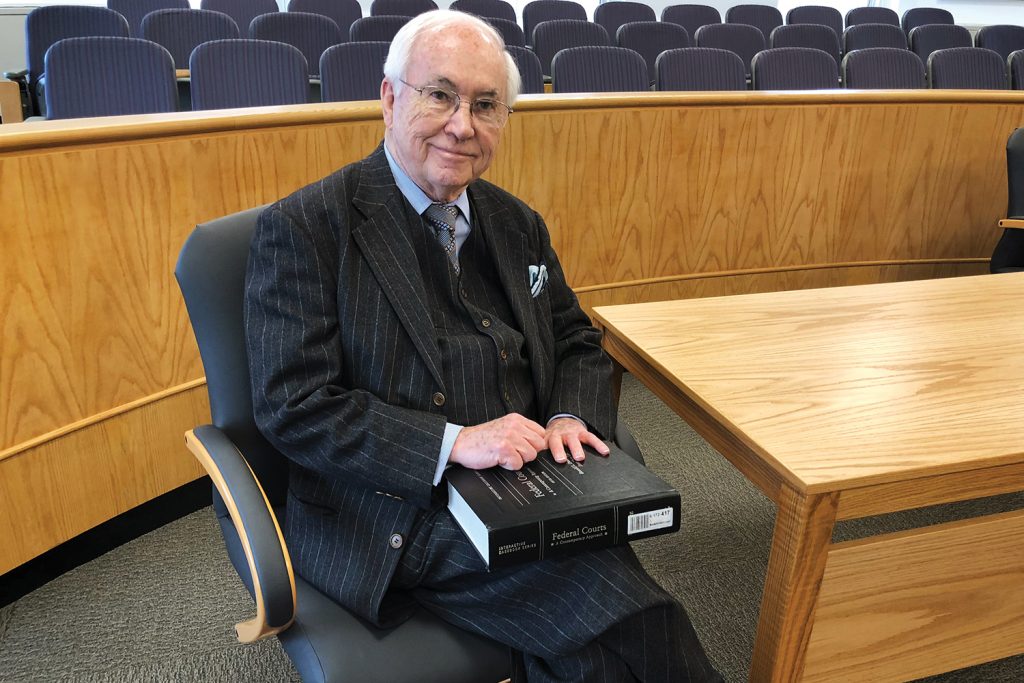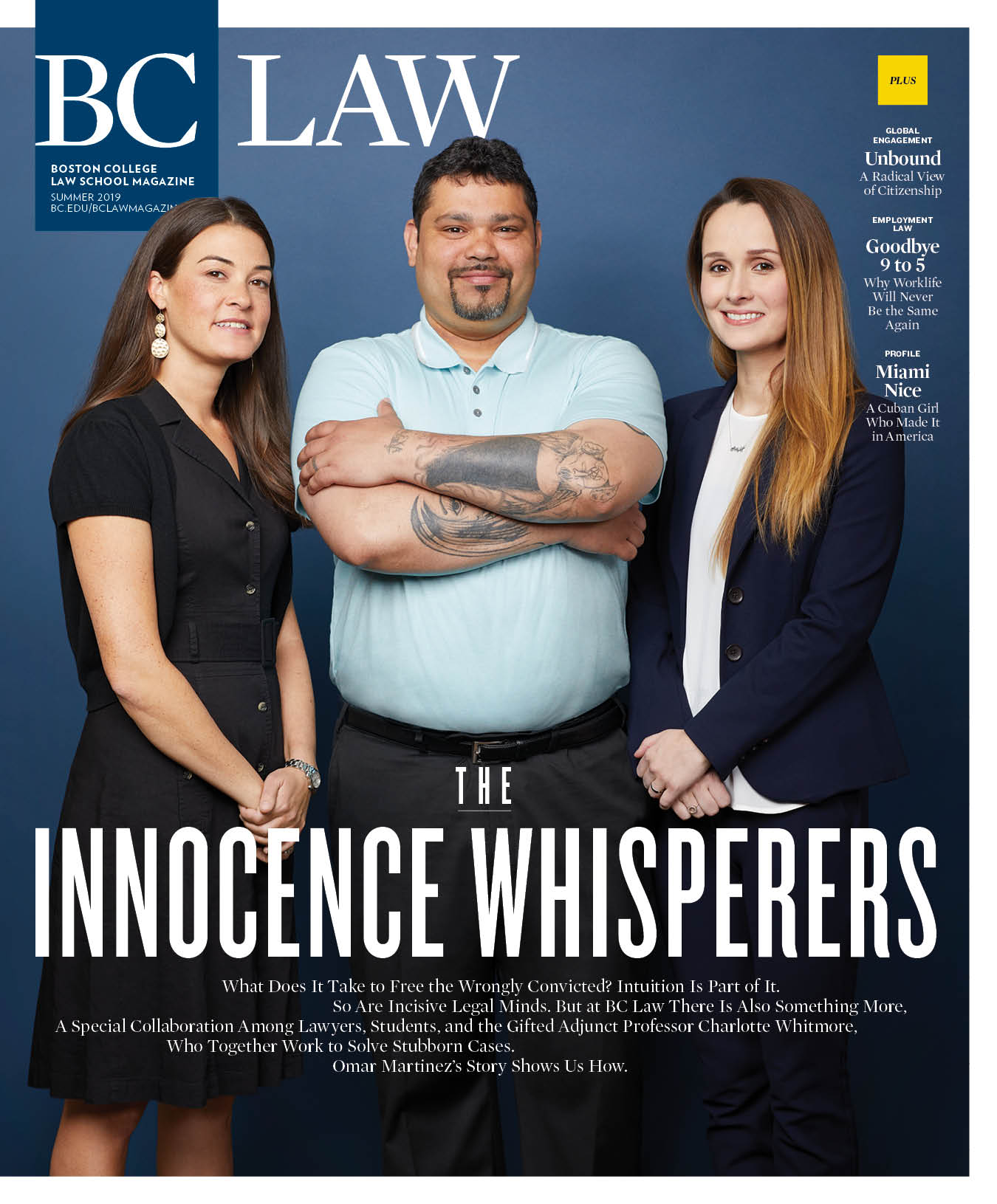When Thomas J. Carey was a law student in the 1960s, students took two years of required courses and then electives, all of them book-intensive, podium-based, and focused on the fundamental legal knowledge required for bar passage. Clinical education, popular today, did not exist.
Yet, for the entirety of his career, Carey, has influenced clinics, competitions, and hands-on coursework. Judith McMorrow, BC Law’s dean of experiential learning, calls him “the utility infielder for all things advocacy.” He is a former full-time faculty member of BC Law, currently juggles his adjunct teaching duties with a career in private practice, remains involved in the Law School’s Moot Court Teams, and is the impetus behind the two-year-old Amicus Brief Clinic.
The clinic is a “pop-up” that responds to calls for amici from the Supreme Judicial Court of Massachusetts. In one recent instance, the process involved a professor interested in the subject (Mark Brodin), a student (Nickolas Merrill ’20), and Carey, who acted as signing attorney.
Merrill recalls one memorable moment when Carey directed him to a specific hornbook in the law library. Not only did Carey remember the title and author, he also described the cover design of the book, the year of publication, and the publisher. “Sure enough, I go into the library, and there’s the book, exactly as he describes it,” Merrill says. “He has one of the sharpest memories I know of.”
Carey is a “master teacher, master lawyer, and the most knowledgeable lawyer I’ve ever known.” —Professor Mark Brodin
Carey’s own legal training began early. His mother was a law student in the 1930s. Though she left before graduation, she worked as a legal secretary, and her interest in the field inspired her son. He attended Boston College and BC Law. “Like a bad penny, I arrived on campus in 1958 and never left,” Carey laughs. “I fell in love with the law very quickly.”
In those days, the Law School steered students to specific practice areas, guiding them into prospective careers while carefully managing the interview process. As a result, Carey and a classmate were sent into Boston, each to meet with two judges for open clerkship positions. Carey left the meeting adoring Judge Andrew Caffrey while his peer favored the other judge. “Luckily,” Carey chuckles, “the judges went out to lunch to discuss their selections and felt the exact same way.”
That clerkship led Carey to an LLM at Harvard Law and then to a brief second clerkship. By 1968 Carey was teaching at Suffolk Law School and in 1971 became a full-time faculty member at BC Law.
Carey eventually left his teaching post for private practice and for a stint as an appellate attorney at the Suffolk County District Attorney’s Office. Even so, he remained active in advocacy programs at BC Law. He returned to the faculty in an adjunct role in 1990, and started the Appellate Advocacy Seminar.
Reflecting on his career, Carey remembers his law professors as superb, recounts stories of his students graduating with impressive experiential credentials, and even tells of how he paid for his own education: He used the proceeds from the farm stand he ran as a teenager outside his home in Hingham, MA, where he has long been active in the town’s civic affairs.
In these moments, with his immediate recall of names, dates, and cases on full display, it isn’t difficult to see why Professor Brodin considers Carey a “master teacher, master lawyer, and the most knowledgeable lawyer I’ve ever known.”
Photograph by Vicki Sanders



